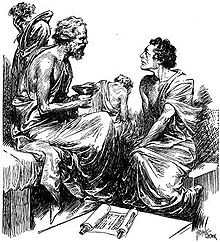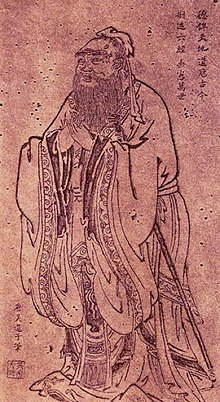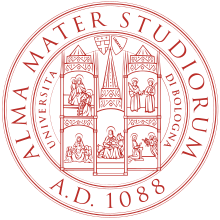User:Manuela.Irarraz/sandbox/Approaches to Knowledge/Seminar Group 9/Disciplinary Categories
Disciplinary Categories
[edit | edit source]The concept of 'disciplinary categories' refers to the process by which various academic disciplines (e.g. mathematics, chemistry, biology, medicine, psychology, political science, literature, and linguistics) are defined and categorised under fields of knowledge, such as natural sciences, applied sciences, social sciences, and humanities. These categorisations incorporate multiple disciplines as they consider common types of knowledge, but are by no means absolute and/or universal. Some disciplines are often put into different categories by different institutions and so are certain concepts taught in more than one discipline. For example, Economics is often classified as a field in Social Science, but sometimes as one in Science.[1]
Despite of their complex and fluctuating nature, the importance of disciplinary categories is increasing with the emergence of interdisciplinarity. Interdisciplinary studies, which involve two or more areas of knowledge[2], require the breaking down of boundaries between different disciplines. In order to overcome boundaries, one must become aware of the fact that such boundaries exist.
Defining Disciplines
[edit | edit source]
Dictionaries tend to offer similar definitions of an academic discipline as 'a branch of knowledge, typically one studied in higher education.'[3] Despite the seeming simplicity of disciplines as a concept, their definition and classification is something of much dispute amongst academics. The natures of different disciplines vary to such a degree that they cannot all be encapsulated in one perfect definition[4]. Furthermore, the growth in number of what we now consider as disciplines only fuels this dispute as the title has been granted to so many fields that have been born and developed out of others.
Scholar John Walton defines a discipline as 'a body of subject matter made up of concepts, facts, and theories, so ordered that it can be deliberately and systematically taught.'[5] Whilst a seemingly sound definition, Walton implies that any field which may be a taught is a discipline, and that any discipline may be taught which is clearly not the case. For example, art is often disputed as being something which cannot be taught and is not self-evidently made up of ordered concepts, facts, and theories. This one disputation alone, offers an idea of the difficulty involved in the definition of disciplines.
With many more attempted and contradictory definitions, the difficulty of defining an academic discipline is made evident. This gives rise to the issue of, primarily, deciding what deserves the title of discipline and, subsequently, categorising them in an easily navigable way.
Defining Categories
[edit | edit source]Dictionaries define a category as a class or division in which entities or concepts sharing similar characteristics belong to.[6] The concept originates from Aristotle, who first formed the system of categories. Through the system Aristotle attempted to classify all the existing beings and ideas into several groups, in other words attempted to categorise them, according to their traits.[7]
However, when it comes to the problem of how we categorise different entities, concepts, and disciplines, the matter becomes quite complicated. The result of categorisation can turn out to be completely different according to which features we decide to focus on.[8] In addition, the categorical descriptivism suggested by Brian Carr indicates the way things are categorised may be heavily affected by how we view the world.[7] Thus, as time passes, the way disciplines are categorised may also shift. For example, between 1945 and 1955, zoology and botany fused together to form a single department of biology, which then was divided into new sub-departments. Scholar Immanuel Wallerstein suggests that the disciplines of social science should go under a similar process, since areas of anthropology, sociology, history, and many other disciplines are overlapping greatly.[9]
History of disciplinary categories
[edit | edit source]An assessment of the history of the academy, or academia, is a necessary step in the study of disciplinary classification based on the agreed assumption that disciplines are 'typically [those] studied in higher education'.[3]

Socratic Teaching
[edit | edit source]The earliest western accounts of teaching and discourse of knowledge go back to the first moral philosopher Socrates. Socrates believed in teaching through conversations. According to his disciple Plato's writings, he even went as far as to disclaim being a teacher and considered himself a conversationalist.
"But through all my life, if I was ever active in public at all, it is apparent that I was the sort of man (and in private I was the same) who never conceded anything to anyone contrary to the just—neither to anyone else, nor to any of those who my slanderers say are my students. I have never been anyone’s teacher; but if anyone, whether younger or older, desired to hear me speaking and doing my own things, I never begrudged it to him. And I do not converse only when I receive money, and not when I do not receive it: rather, I offer myself to both rich and poor alike for questioning, and if anyone wishes to hear what I say, he may answer me. And whether any of them becomes an upright man or not, I would not justly be held responsible, since I have never promised or taught any instruction to any of them."[10]
Plato's Academy
[edit | edit source]Straying away from his mentor Socrates' belief in one to one teaching through conversation, Plato founded what is often considered to be the first documented institution of education, the Academy, in 387BC.[11] It is unclear as to what Plato's prescribed curriculum was, but it is of common belief, through study of Aristotle's early works and Plato's Republic, that attention was largely focused on typical Platonic dialectic of varying philosophical theses with a large weight on geometry and mathematics.[12] This would also explain Plato's Pythagorean influence.[13] Despite lack of specific knowledge on Plato's Academy, many accredit it as the first instance of higher education, and this idea alone was enough to influence further institutions, and the development of the modern academy, and later university.
Aristotle's Categories
[edit | edit source]
Aristotle was an ancient philosopher from Greece born in 384 BC. Aristotle was originally one of the students of Plato, later on he became the mentor of Alexander the Great, and founded the school Lyceum in Athens in 335 BC.
Aristotle was the first western philosopher to come up with the definition ‘category’ in his book Organon. His main goal with introducing categories was to provide a logical explanation to the happenings and beings in the world. In the Organon he categorised the relations of existing subjects in the material world into ten groups. The ten categories were substance, quantity, quality, relation, place, time, situation, condition, action, passion. Aristotle invented these categories by observing the possible questions we can ask about a subject, such as what is it, where is it, or how does it look like in relation to other subjects.[14] Aristotle had interests in a wide range of different disciplines besides philosophy (ethics, rhetoric, biology, metaphysics, politics), dedicating most of his time to logic. Inventing categories lead to his logical system called ‘Categorical Syllogism’. He also divided substances into two main categories, the primary substances (individual beings, such as an individual human, or a horse) and secondary substances (species, such as humans, or animals).
The Lyceum was located in Athens, and served as a space both for military trainings and teaching. Aristotle established the Peripatetic school in the Lyceum, which name originates from the Greek word ‘peripatêtikos’ meaning ‘walking’, referring to Aristotle’s habit of walking while teaching. The Peripatetic school was a place mainly for philosophical lectures and discussions and functioned as an educational institution.[15]

Academies of Ancient China
[edit | edit source]Whilst the term ‘academy’ originated from Plato’s Academy, this does not mean that academies, or institutions of education, did not exist in areas other than ancient Greece. In China, the history of education starts from as early as 2000 B.C. with the Xia Dynasty (2070 B.C.~1600 B.C.). The earliest schools, called Xiao, were established by the government and only accepted children of nobles. This changed by the Zhou Dynasty (2070 B.C.~1600 B.C.) when schools were divided into state schools and village schools. The former focused on the education of nobles while the latter was dedicated to the education of common people.[16]
It was also during the Zhou Dynasty that the early forms of college appeared in China. Those studying in the state schools first went through elementary courses, and on its completion, moved on to college courses. Common people could also study in college after graduating village schools, though such cases were rare.
Imperial College, a more developed form of academy than the early colleges of the Zhou Dynasty, was first established by Emperor Wu of the Western Han Dynasty (206 B.C.~9 A.D.). Imperial College continued to be the institution of the highest education through several dynasties. However, the major difference between Imperial Colleges and modern universities is that the former focused solely on teaching Confucianism. Meanwhile, other disciplines of knowledge were rather considered as skills or talents and were taught in separate institutions. A few examples would be the History Academy of the Southern and Northern Dynasties (420~589), the Law Academy of the Song Dynasty (960~1279) and the Painting Academy of the Ming Dynasty (1368~1644).[16]
Universities in Medieval Europe
[edit | edit source]
In Europe, during the Middle Age, the tradition of academic institutions was succeeded by early forms of universities. The first university to be established in Europe is known to be the University of Bologna, which was founded in the 11th century. Institutions such as University of Paris and University of Oxford followed suit.[17]
The disciplines taught in medieval universities were categorised quite differently compared to that of modern universities. The education in the institutions started from the study of seven subjects, which contained some disciplines that are not categorised as liberal arts nowadays; arithmetic, astronomy, geometry, grammar, logic, music, and rhetoric.[17] The liberal arts of that time were disciplines that were based on thinking, and were distinguished from practical arts such as medicine and law that required skills.
The seven subjects were again divided into trivium and quadrivium.[18] Trivium consisted of grammar, logic, and rhetoric. Through the study of trivium, students learned the rules of language, the process of thought and analysis, and the methods of communicating their logic through language. These studies would then be the base for learning quadrivium, which was composed of arithmetic, geometry, music, and astronomy. The four subjects were considered to be in relation with numbers; arithmetic dealt with number itself, geometry with number in space, music(focused on the study of theories on harmony) with number in time, while astronomy dealt with number in time and space.[19]
Disciplinary Categories and Education
[edit | edit source]According to P. Bourdieu, a discipline is an area of knowledge that is acknowledged academically and socially.[19] Disciplinary categories are shared by research institutes, journals, libraries, and above all, universities. It is a very convenient way to organise various fields of studies that are educated. However, while the original purpose of disciplinary categories was to classify knowledge, these categories might actually restrict our ways of thinking through reflecting certain prejudices that should be abandoned. For instance, “Homosexuality” was once under the category of “Sexual perversion”, which certainly influenced how people viewed the subject. Removing it from the category of “Sexual perversion” required efforts of numerous activists.[20]
First Disciplines in Education
[edit | edit source]As it has been previously mentioned, the first academies in the west are said to be originated from Greece. Both in Plato’s Academy and Aristotle’s Lyceum shared two main traits in common: first, the teaching was mostly verbal, and second, both institutions fulfilled a role of military practice.[21] Similarly, in one of the world’s oldest university, The University of Al-Karaouine in Morocco, founded in 859 BC by Fatima al-Fihri, teaching focused on rhetoric and religion, reflecting to a crucial element of the society back then. Following African universities, the University of Oxford and Harvard focused originally on religious studies as well.[22]
In ancient times, the first disciplines taught in Greece were Music and Mathematics, followed by the Academy, where politics, philosophy and social sciences arose as broad disciplinary categories. In the Roman era, the discipline of law was also established. In Medieval Europe, the universities mainly served to understand and encourage faith, and therefore focused on theology. As the number of schools increased and education became more widespread, institutions started to divide for law, medicine and arts. Only after the mid-19th century were the disciplines of today created, after the period of Enlightenment, when the focus shifted to new scientific discoveries.[19]
Most European and American schools had a different educational approach in higher education. Harvard introduced the elective system in 1825, followed by the University of Virginia, where students could choose to study different disciplines instead of specializing into one discipline. In contrast, the universities in Germany founded at that time tended to follow a less utilitarian approach, with a stronger focus on investigation and writing. The universities of Germany had a crucial impact in forming the American institutions, which adopted several traits of the German system of academic freedom. (France, UK: origins of the specialized education system) As we can see, at that time separated disciplines existed already, being nearly identical to our education system today. The modern classification of academic disciplines are the following: Fine Arts, Humanities, Social Sciences, Sciences and Mathematics.[19]
Differences Between East and West
[edit | edit source]History of Sciences
[edit | edit source]
The history of sciences comprises the study of the development of both natural and social sciences. The term 'scientist' was coined fairly recently in the 19th century by William Whewell.[23] The term natural philosophers was used to describe what we think of as modern natural scientists. Isaac Newton, the primary contributor to modern day physical sciences titled his work Philosophiæ Naturalis Principia Mathematica (or Mathematical Principles of Natural Philosophy) which to modern readers at first glance might not appear to pertain heavily to physics. It is interesting also to note that all these disciplines in natural and social sciences were once taught under the collective banner of philosophy (from philos (love) and sophia (wisdom): love of wisdom).
History of Scholarship
[edit | edit source]Methodological Differences
[edit | edit source]Notes
[edit | edit source]- ↑ Chetty, Raj, Yes, Economics is a Science, The New York Times, 20 October 2013
- ↑ Oxford English Dictionary (2018)
- ↑ a b Oxford English Dictionary (2018)
- ↑ Krishnan, Armin (2009) What are Academic Disciplines, University of Southampton National Centre for Research Methods
- ↑ Walton, John and Kuethe, James L. (1963) The Discipline of Education, University of Wisconsin Press
- ↑ Oxford English Dictionary (2018),
- ↑ a b Thomasson, Amie, "Categories", The Stanford Encyclopedia of Philosophy (Spring 2018 Edition), Edward N. Zalta (ed.), URL = <https://plato.stanford.edu/archives/spr2018/entries/categories/>
- ↑ Butts, W. K. (1946) Classification, Bios Vol.17, No.1, 51-59, Beta Beta Beta Biological Society
- ↑ Wallerstein, Immanuel (2003) Anthropology, Sociology, and Other Dubious Disciplines, Current Anthropology 44, No.4, 453-465.
- ↑ Plato, Apology, 33a-33b
- ↑ https://www.history.com/topics/ancient-history/plato
- ↑ Plato (427–347 BC), Routledge Encyclopedia of Philosophy
- ↑ Pythagoras, Stanford Encyclopedia of Philosophy
- ↑ https://www.iep.utm.edu/aristotl/#H3
- ↑ https://www.iep.utm.edu/lyceum/#H2
- ↑ a b Kelly, "China Ancient Education", China Highlights (2018), https://www.chinahighlights.com/travelguide/ancient-education.htm
- ↑ a b University, Encyclopædia Britannica, Encyclopædia Britannica, inc., August 2018
- ↑ Liberal Arts, Encyclopædia Britannica, Encyclopædia Britannica, inc., August 2010
- ↑ a b c d Vashishtha, U.C. (2016), Discipline: Meaning, Evolution and Classification, Development of Education as a Discipline An Analytical Study
- ↑ Adler, Melissa A. (2015), "Let's Not Homosexualize the Library Stacks": Liberating Gays in the Library Catalog, Journal of the History of Sexuality, Vol. 24, No. 3, 478-507, University of Texas Press
- ↑ https://repository.edulll.gr/edulll/retrieve/11325/3524_Kalligas.pdf
- ↑ https://press.rebus.community/idsconnect/chapter/the-history-of-the-academy-and-the-disciplines/
- ↑ https://blogs.kent.ac.uk/sciencecomma/files/2015/04/whewell_1834_scientist.pdf